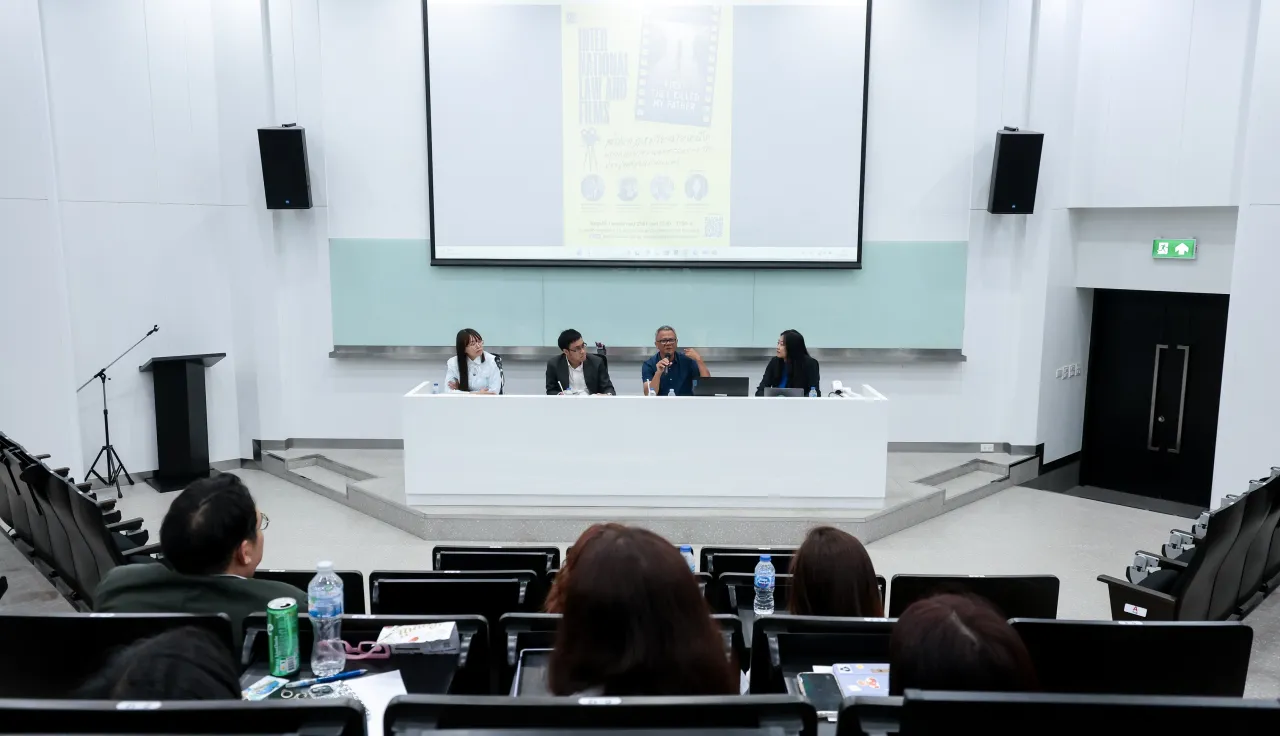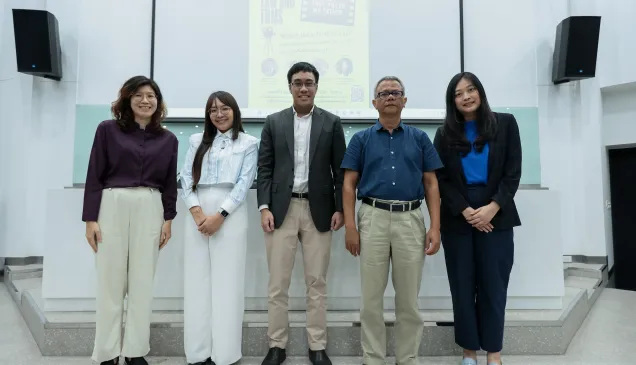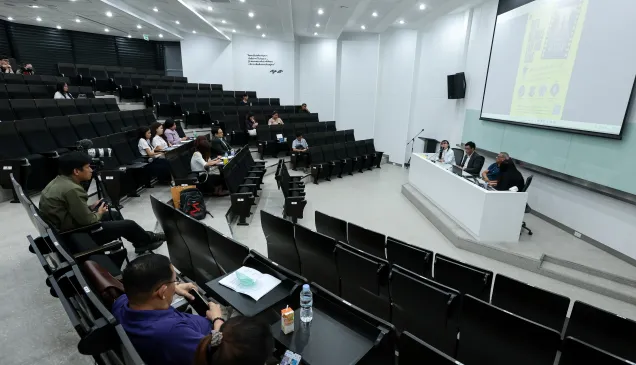Thailand: ICRC and Thammasat University screen film, host discussion on IHL and South-East Asian history

On 1 November, Thammasat University's Faculty of Law, together with the International Committee of the Red Cross (ICRC), hosted a special screening of the acclaimed film, First They Killed My Father. The event, which included a panel discussion centred around the film, turned out to be a poignant exploration of history and the enduring power of international law.
The film screening event, now in its third year, is part of the faculty's ongoing International Law and Films project. The initiative aims to bridge the gap between legal theory and cinematic storytelling, offering a unique platform to take a look at complex legal issues through the lens of cinema.
The film, set in 1975 amid the armed conflicts in Cambodia and Viet Nam, provided a stark reminder of the horrors of war and the enduring trauma experienced by survivors. The subsequent panel discussion delved into the historical and legal implications of the film and its themes, offering a multifaceted analysis of the past and its relevance to the present.
The distinguished panellists – Assistant Professor Morragotwong Phumplab from Thammasat University's Faculty of Liberal Arts, Supalak Ganjanakhundee, adviser to the Committee for Military Matters of Thailand's Lower House and Jirat Jitwarawong, ICRC’s legal adviser in Bangkok – provided their distinctive expertise to the discussion which covered a wide range of topics, from the historical context of South-East Asia during the Cold War to the enduring impact of ideological conflict. The panel also examined how memory and the representation of the past shape our understanding of history.

(From left to right) Assistant Professor Dr Lalin Kovudhikulrungsri, Thammasat University's Faculty of Law; Assistant Professor Morragotwong Phumplab, Thammasat University's Faculty of Liberal Arts; Mr Jirat Jitwarawong, ICRC’s legal adviser for the regional delegation in Bangkok; Mr Supalak Ganjanakhundee, adviser to the Committee for Military Matters of Thailand's Lower House; Professor Thitirat Thipsamritkul, Thammasat University's Faculty of Law.
A key focus of the discussion was the role of international humanitarian law (IHL) in mitigating the suffering caused by armed conflict. Drawing on the film’s historical context and some of the themes depicted in the film, such as the use of child soldiers and the disastrous impact of explosive remnants of war, the ICRC’s legal adviser highlighted the importance of IHL in protecting civilians, persons deprived of liberty and the wounded, even in the direst circumstances.
“There is a need for continued efforts to uphold and strengthen IHL, particularly in times of peace. To ensure that the law yields positive results, it is important for states to contribute to a culture of IHL compliance, as outlined in the latest resolution adopted at the International Conference of the Red Cross and Red Crescent in October 2024,” said Jitwarawong.

A diverse group of around 50 participants attended the film screening and discussion, in person and through Facebook Live.
The event was a valuable learning experience for the diverse group of 50 participants who attended, both in person and online. The spirited discussions demonstrated the enduring interest in exploring the intersection of history, film and international law. By fostering an informed dialogue through the screening of such thought-provoking films, Thammasat University and the ICRC are not only aiming to enable a deeper understanding of the past but also raising awareness of IHL. This initiative highlights the power of film to educate and inspire, encouraging audiences to consider the impact of armed conflict on individuals and communities, and how IHL saves lives and upholds the values of humanity.
Read more about the ICRC's work in Thailand
- Thailand: ICRC and Thammasat University screen film, host discussion on IHL
- Thailand: Decades after hostilities have ceased in neighboring countries, innocent mine survivors living in Eastern Thailand still bear the scars of war
- 4th ICRC-ASEAN Joint Platform: Collaboration with local actors is the key to resilience in South East Asia



